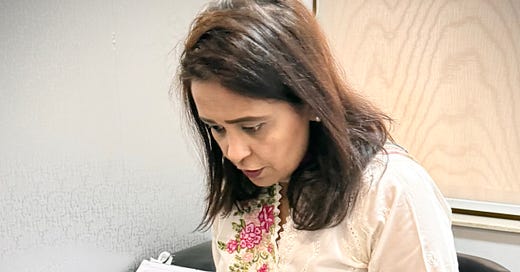It’s early afternoon. I’ve just completed a detailed evaluation of a pleasant elderly lady who had a stroke over an year ago.
Her daughter and niece brought her in, concerned about the lack of meaningful recovery despite what they described as “not missing a single day of therapy after the stroke.”
As I walked into the clinical room, observed the patient, and began the assessment, a quiet heaviness settled over me. From the first few moments of our interaction, I knew we were likely looking at a grim functional outcome for the patient.
As I performed the neurological examination, testing her motor control, balance, coordination, sensation, and functional mobility, it became increasingly clear that the most responsive period for meaningful recovery had long passed.
And though I don’t know exactly what was done during those early, crucial months, I suspect that essential interventions were either delayed or not fully aligned with the patient’s needs.
Her daughter and niece had already asked, "Please don’t share your impressions with her if they’re discouraging. She loses hope too easily."
So, after I completed the examination, I gently asked the family to meet me privately.
We sat down in my office. I took a deep breath and did what I have to do more often than I would like. While I always try to give the maximum hope possible, I had to offer this family the truthful outcome, even though I knew it didn’t provide the reassurance they were longing for.
I explained how stroke recovery follows a very particular pattern, one that demands urgency in regaining maximum function during its early stages. I walked them through what had likely been missed and what could still be done, although now the goal was not the reversal of disability, but the improvement of quality of life.
As I spoke softly and steadily, the daughter’s face crumpled, and tears spilled onto her cheeks. The atmosphere turned heavy with an unspoken sense of helplessness.
I felt it too, not as weakness, but as a shared humanity.
I'll be honest, I always find it hard to stay strong in these moments. I know I’m expected to maintain clinical distance, but I’m also a daughter who has seen family members’ illnesses and experienced the loss of a parent. I know how difficult it is to absorb bad news. And in moments like these, I don’t just see the patient’s relative. I see someone like me.
We talked for a while. I explained the path ahead, the techniques and strategies that could still help improve her daily functioning, preserve her dignity, and nurture whatever potential for recovery still exists within her current capacity. But I remained honest about the limitations.
In a world grounded in evidence-based medicine, we cannot afford to offer false hope. It does no good to the patient, the family, or to our professional integrity.
When I first chose physical therapy as a career, I believed I would never be the bearer of bad news, and at the time, that seemed like a relief. After all, who wants to deliver difficult truths? But what my younger self didn’t realize was that bad news isn’t always about life and death. Sometimes, it’s about the presence or permanence of disability. And that’s where I find myself most often—between what is lost and what could still be reclaimed.
Every day, patients or their families ask me, Will my child be able to walk? Will I be able to return to work? Can I go back to my gardening, offer namaz in full posture, or play tennis again?
Sometimes my answer lights up the room with renewed hope.
Other times, it brings a kind of stillness that is quieter, more difficult.
And while I try to stay composed, these conversations stay with me. By the end of such days, my back feels tighter, and my shoulders bear more than muscle fatigue. They carry the emotional weight of every story and every shared sorrow.
But I keep showing up. Because, as I always say to my patients, we humans were not made to be static beings. We are mobile beings. And even when mobility cannot be regained according to ideal expectations, we must continue to move. That mobility may be different for each individual, but it’s our responsibility as professionals to guide patients toward whatever functional independence is still possible, honestly and wholeheartedly.
That’s why it’s crucial to take ownership of these conversations, because behind every difficult prognosis is a family seeking clarity, a daughter needing direction, and a patient deserving dignity.
And sometimes, even when full large-scale recovery isn't the story we hoped to write, there is still power in small milestones that follow sincere treatment. In the quiet understanding between a professional burdened with telling the truth and a patient bravely hearing it, there is always hope in the small gains.





Quite true. Sometimes I think we women are like a blotting paper which absorbs ink but in our loving hearts absorb grief and become full of sympathy.
Thats very nice..Dr fariha, A professional with true understanding of humans anatomy and understanding of human psychological needs is what make you separated and unique in your skills and profession, that is one bit of your successful physical therapy in Pakistan and internationaly. I had personal experience with you regarding my uncle who was suffering from body pain and some emotional trauma which we didn't know till we met you in 2021 in your hospital. You addressed his physical as well as emotional nuances and he recovered in two sessions although he was struggling from more than two years. Glad you also have Great writing skills with huge dedication,knowledge and experience for your profession and now you pinning your experience with masses.
Hatts off to you and Stay blessed Dr sahiba